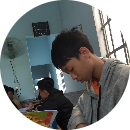write an paragraph of around 150 words on the following topic : what is your favorite sport

Những câu hỏi liên quan
Write a paragraph (100-150 words) about your favorite critter. Use any of the four structures to organize your paragraph. Be sure to include a topic sentence, a clear organization, and interesting details that support your topic sentence. Create an interesting title for your paragraph.
write a paragraph of about 120 words on the following topic: \\\'\\\'what club do you want to be founded in your school? why ?\\\'\\\'
Write a paragraph about 120-150 words on the following topic
"What should you do to make your school become cleaner and more beautiful"
Giúp e với ạ , e đang gấp lắmm !!!!!!
Xem chi tiết
The classroom is a place where we play and learn so protecting it is something every student must know. So what do we need to do to keep it clean. First we need to clean, sweep the house, wipe the table cleaning table ..., next we should not throw garbage indiscriminately, but throw it in the trash. Put more trees in the classroom to keep it cool and educate your friends about how to stay clean in class. I criticize some of you for not knowing how to keep your classroom clean. The above actions can help us to protect the environment in which we study in a cool, hygienic way so that we always learn to keep a happy spirit in every class.
Đúng 2
Bình luận (0)
School is a place where we learn, have fun, and have fun. Of course we also have a responsibility to protect and preserve this place. First the simplest thing we need is to not litter the school yard or classroom indiscriminately.After that, all you need to do is propagate to everyone to keep the school clean and beautiful.You can also make suggestions to your teacher or school about the planting of trees and chandeliers in the school yard.Finally, you and the others need to follow the rules, not picking flowers or trees.Let's strive for a green, clean and beautiful school environment!!!
chúc bn hok tốt ![]()
Đúng 2
Bình luận (0)
My name is Thảo. I am in class 7C. I think I can suggest some ways to make my school greener, cleaner and more beautiful. Firstly I will encourage students to go to school by bike or bus. It will be very friendly to the environment. Next, I will talk to teachers at school about putting recycling bins in every classroom. We can reuse or sell the things in these bins. Finally, I will organize the secondhand item exchange festival where students can swap their old items with their friends instead of throwing them away. These activities may not be very big, but they may contribute a good, green part to the environment, precisely here is our school.
Đúng 0
Bình luận (0)
Write a short paragraph (80 - 100 words) about your favorite restaurant, based on the suggested questions: 1. What is your favorite restaurant?2. Where is it?3. How often do you go there?4. What kind of food does it serve?5. What kind of food do you want to enjoy most? Why?6. What do you think of the service of the restaurant?giúp em bài này với ạ.
Đọc tiếp
Write a short paragraph (80 - 100 words) about your favorite restaurant, based on the suggested questions:
1. What is your favorite restaurant?
2. Where is it?
3. How often do you go there?
4. What kind of food does it serve?
5. What kind of food do you want to enjoy most? Why?
6. What do you think of the service of the restaurant?
giúp em bài này với ạ.
My favourite restaurant is Tin Tin, which is in Tu Moi, Quynh Phu, Thai Binh. It was the first restaurant that I went to. That day, I went with my family. It brought memories that I can hardly forget. We ate hot pot, which is very popular in restaurants. My favorite food that day was beans, which is also my favorite food. It's really great. We sat down to eat on the balcony, where there was a landscape of a vast lotus lake. The waiter was very kind, we went home satisfied. I will miss this restaurant and the trip that day.
Đúng 2
Bình luận (1)
III. Write a short paragraph of about 60 - 80 words about the following topic. (1.0 pt)
III. Write a short paragraph of about 60 - 80 words about the following topic.
Topic: your favourite communication form
Topic: Benefits of science and technology for your study
trả lời nhé ! cảm ơn
- Write an opinion paragraph (about 120- 150 words) expressing your opinion on the topic: Should mothers stay at home with their children?
Write a description of your favorite sport or a sport that you do in 100-125 words. Answer these questions:
What is the name of the sport?
Which equipment do you need to play this sport?
How many players are there?
What are the rules of this sport?
Do you like it or not? Why (not)?
dịch là : Viết mô tả về môn thể thao yêu thích của bạn hoặc môn thể thao bạn làm trong 100-125 từ. Trả lời những câu hỏi này:
Tên của môn thể thao là gì? Bạn cần những thiết bị nào để chơi môn thể thao này? Có bao nhiêu người chơi? Các quy tắc của môn thể thao này là gì? Bạn có thích nó hay không? Tại sao không)?
Đúng 0
Bình luận (0)
tham khảo:
hi everyone,my name,s minh. Now,I will talk about my favourite sport.
My favourite sports is badminton.this sport need 2 badminton racket and 1 badminton ball.this sport need 2 player. The rule of the game is that 2 people stand facing each other, each person holding a badminton racket and one of them holding a badminton ball. The person holding the badminton ball takes the badminton racket to fly over the spikes and the second person plays back for the one person. just like that,whoever misses and make the badminton ball fall to ground will lose
Đúng 0
Bình luận (0)
II. Write a paragraph with the following topic (1pt)
Write a paragraph of 50 – 70 words about the topic: “Write about your last vacation”
làm nhanh giúp mình
Refer
Last summer holiday, in order to escape the extreme heat of Danang city, my family and I decided to go to Dalat. We went there by bus.
When we got this mountainous and wonderful city, it was getting dark. We felt very excited because of the nice weather and the fresh air. We stayed in Hoa Hong hotel, a little but comfortable one in the centre of the city.
The next day we went shopping in Hoa Binh market and, caught some fresh air by sitting near the Xuan Huong lake. We had lunch in a nice restaurant near the garden of flowers. The food was delicious and cheap especially the vegetables. In the afternoon, we took a taxi to visit the Valley of the Love. How beautiful it was! The following day was for visiting Prenn Waterfall, the Than Tho lake and the Hills of Pine. Every spot has its own beauty, I could say which is the best. People are friendly and polite, especially young Dalat girls with their pink cheeks.
This wonderful holiday helped us to get rid of worries and trouble and gave us health and enthusiasm to resume work again. It was an interesting and unforgettable holiday.
Đúng 0
Bình luận (0)
Write a paragraph of about 160 words on the following topic:
What are some skills that school students need nowsdays?
Bạn nào trả lời giúp mình với. Mình đang rất cần -.-
Đúng 0
Bình luận (0)
This is the first of three posts that I am writing in an attempt to inspire more discussion around the following question: How do we prepare students to be successful in their futures?
Determining an answer to this question, is a discussion that I believe needs to include students, instructors, parents, businesses and community members. In other words, this is a discussion that needs to include everyone!
In order to tackle this issue from the stance of an educator, I want to take a look at three different questions:
What are the skills that our students need to be successful?
In order to help students develop these skills, what type of projects and assessments can we engage them in?
What are some tools and practices that we can use to implement these skills into the classroom?
The goal of this post is to address the first of these three questions.
The Issue
In the United States alone, there are approximately 55.6 million students attending elementary and secondary schools and 20.5 million students attending colleges and universities. In the majority of schools and classrooms that I have worked with, students are mainly being assessed on lower-level thinking skills such as memorization and recall. The multiple choice, short-answer and matching questions, along with the academic research paper, are still depended on as the main modes of assessment.
This needs to change.
My goal was to discover the most important skills that students need to be successful. After speaking with hundreds of business leaders and reading hundreds of articles, it became clear that it is time for education to change. The same skills continued to be mentioned. There is less demand for obedient workers who can simply show up on time and follow directions. There is an increased demand for self-directed workers who can adapt and learn quickly, think critically, communicate and innovate.
Approximately 65% of our students will be employed in jobs that don’t exist yet. So, how do we prepare them for this? I believe that we do so by helping student develop the skills that they will need to succeed in a future filled with uncertainty.
The Skills
I decided to compile the notes I took while doing my research. My goal was to identify the skills that were brought up the most in an attempt to determine which skills our students will need to be successful in their futures. The following are the 10 skills mentioned the most often:
1. Adaptive Thinking: In the digital age, things are changing at exponential rates. By the time employees learn the newest software or program, a better version is coming about. Future employers will need to continuously adapt to changing conditions as well as be able to learn new things quickly and efficiently. We need our students to learn how to learn.
Recommended LinkedIn Learning Course: Learning Agility2. Communication Skills: There continues to be an emphasis on the ability to communicate. In the digital age, however, we have access to a wide variety of new ways to communicate from video-conferencing to social media. Future employers need to be able to communicate with people within their team, as well as people outside of the team and organization.
Recommended LinkedIn Learning Course: Communication Tips Weekly3. Collaboration Skills: Most classrooms foster a culture of competition and independence rather than one of teamwork and collaboration. Future employers will need to quickly adapt to a culture of collaboration. They will need to collaborate with others within and outside of the organization, often using a number of new technologies.
Recommended LinkedIn Learning Course: Teamwork Foundations4. Critical Thinking and Problem Solving Skills: There is a decreased emphasis on employers following directions and an increased emphasis on employers thinking critically and solving problems. In a rapidly changing world, employers need employees who can solve problems, provide ideas and help improve the organization.
Recommended LinkedIn Learning Course: Critical Thinking5. Personal Management: This includes the ability for employers to independently plan, organize, create and execute, rather than wait for someone to do this for them.
Recommended LinkedIn Learning Course: Leading Yourself6. Inquiry Skills: The large majority of academic assessments ask students for answers. Rarely do we assess students on how well they can ask questions. The ability to ask great questions, however, is a critical skill that is desperately needed in a culture which requires constant innovations.
Recommended LinkedIn Learning Course: Asking Great Questions7. Technology Skills: Almost every business that I talked to said that employers will need to be skilled at using technology. In the digital age, technology is everywhere. Schools, however, have been slow to adapt to this change. Rarely are students required or taught to learn technology efficiently. This needs to be emphasized.
Recommended LinkedIn Learning Course: Building Your Technology Skills8. Creativity and Innovation: This skill is mentioned often. I believe that it correlates with the ability to ask good questions and the ability to problem solve. Employers will be looking to employees more and more for creative and innovative solutions to issues that exist.
Recommended LinkedIn Learning Course: Creative Thinking9. Soft Skills: Schools rarely spend time teaching students soft skills, including skills such as time management skills, organizational skills, the ability to look someone in the eyes when talking to them, or using a firm handshake. I have heard a number of times, by different business leaders, that these skills seem to be disappearing.
Recommended LinkedIn Learning Course: Personal Effectiveness Tips10. Empathy and Perspective: Although this skill has always been important, it seems to be another one that is slowly disappearing. The ability for our students to put themselves in someone else’s shoes, to understand their feelings, and to help solve their problems.
Recommended LinkedIn Learning Course: Communicating With EmpathyThe Action
Although it is important for our students to learn a core set of knowledge, we are not helping them develop these 10 skills by simply requiring them to regurgitate facts in an attempt to earn grades for a course. We need to have students apply what they are learning by engaging them in projects. We need to engage them in higher-order thinking skills in order for them to develop the skills that will be critical to their future success. Bloom’s Taxonomy provides a great illustration of the different levels of thinking. As educators, we need to stop depending on the lower level skills, such as memorization and recall, and help students develop higher-order thinking skills such as applying, analyzing, evaluating, and creating.
Then, and only then, will we be helping students to develop these skills. Most educators that I have spoken with agree with this analysis. There is one question that seems to always arise, however: In order to help students develop these skills, what type of projects and assessments can we engage them in?
That question will be the focus of my next post on this topic.
Tick mk nha
Đúng 0
Bình luận (0)























